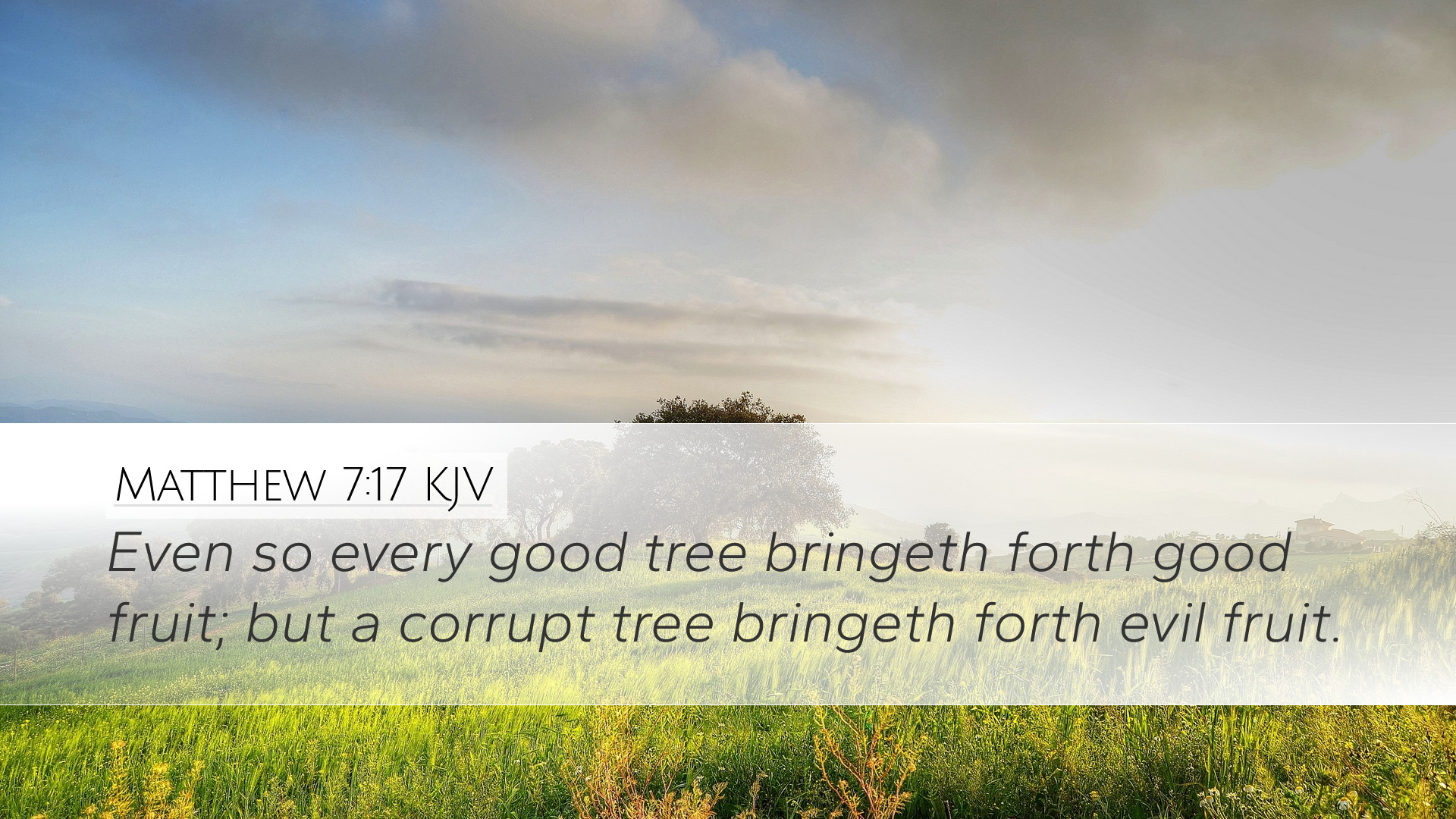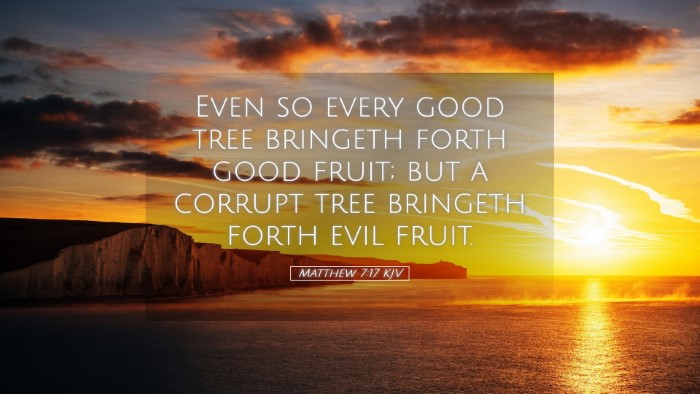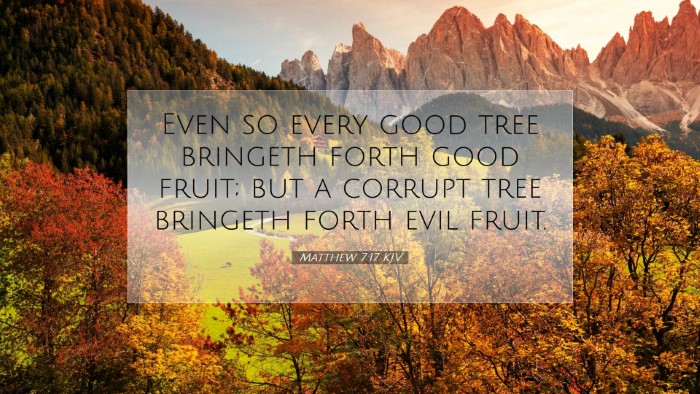Commentary on Matthew 7:17
Matthew 7:17 states, "Even so, every good tree bringeth forth good fruit; but a corrupt tree bringeth forth evil fruit." This verse is part of the Sermon on the Mount, where Jesus addresses the nature of discernment—particularly as it pertains to recognizing true righteousness as opposed to falsehood.
Contextual Analysis
This verse comes in the broader context of Jesus teaching on the importance of recognizing true prophets and teachers. The imagery of trees and their fruit serves as a powerful metaphor for evaluating the character and actions of individuals claiming to be followers of God.
Overall Theme
The fundamental idea expressed in this passage is that the nature of a person's character can be discerned by observing their actions and the outcomes of those actions.
Insights from Commentaries
Matthew Henry
According to Matthew Henry, the metaphor of trees producing fruit is rooted in biblical symbolism where trees represent people and their fruit symbolizes their deeds or spiritual output. Henry emphasizes that the quality of one’s life is revealed through one's actions:
- Good Trees: Henry illustrates that a "good tree," representing a righteous person, will yield "good fruit," which includes acts of kindness, integrity, and faithfulness. The internal state of the person—a heart aligned with God's will—is crucial.
- Corrupt Trees: Conversely, a "corrupt tree" signifies a wicked individual, whose external actions reveal an inner corruption, resulting in "evil fruit," such as deceit, immorality, and unfaithfulness.
Albert Barnes
Albert Barnes further expounds on this verse by discussing the implications of genuine faith as evidenced in one’s life. He notes that:
- Discernment: Barnes stresses the necessity of discernment in evaluating others, particularly those in positions of religious authority. True faith will naturally produce good works as a demonstration of authenticity.
- Unity of Inner and Outer Life: He highlights that there should be a harmony between one’s professed beliefs and actual conduct. A discrepancy between belief and behavior calls into question the validity of one's faith.
Adam Clarke
Adam Clarke provides a comprehensive interpretation emphasizing the nature of fruit production in trees as indicative of health and vitality:
- Spiritual State: Clarke posits that the spiritual state of the heart is directly linked to the types of deeds one performs—good deeds testify to the sanctifying work of the Holy Spirit.
- Examination and Reflection: He encourages believers to examine their own lives and the outcomes of their actions as a means of self-assessment to ensure alignment with God’s righteousness.
Theological Implications
This verse carries profound theological implications for understanding sanctification. It illustrates the transformative work of Christ in an individual’s life. A believer who is genuinely transformed will yield spiritual fruit, which ties into the New Testament’s frequent motifs of evidence of genuine faith (e.g., Galatians 5:22-23—the fruit of the Spirit).
Fruitfulness as Evidence of Faith
The concept of fruitfulness serves multiple purposes:
- Witness to the World: The fruit produced by believers serves as evidence to the world of God's transformative work.
- Encouragement for Believers: Among the community of faith, the fruits can encourage and edify others to pursue holiness and good works.
Practical Applications
For pastors, students, theologians, and scholars, the implications of Matthew 7:17 provide insight into several practical applications:
- Assessing Leadership: The verse underscores the importance of scrutinizing the lives of spiritual leaders, ensuring their teachings align with their actions.
- Personal Reflection: Individuals should consistently reflect on their own actions and the fruit they produce, ensuring it aligns with their proclaimed faith.
- Encouraging Righteousness: Believers should seek to cultivate good fruit in their lives, embodying values and behaviors consistent with the teachings of Christ.
Conclusion
In summary, Matthew 7:17 illustrates vital principles about discernment and the connection between internal character and external actions. The integrated insights from Matthew Henry, Albert Barnes, and Adam Clarke affirm the necessity of aligning one's life with the teachings of Christ and being both hearers and doers of the word. The metaphor of good and corrupt trees serves as a compelling reminder that true faith produces unmistakable fruit—fruit that brings glory to God and serves as a beacon of light in a world desperate for truth.


